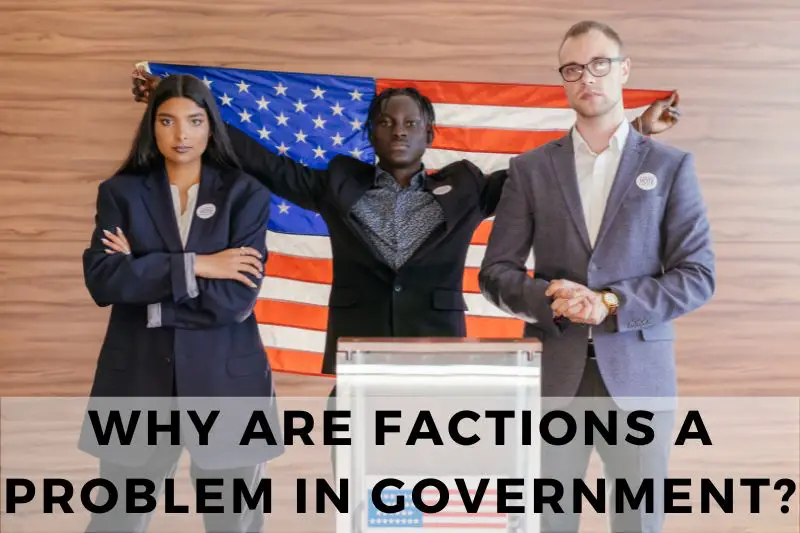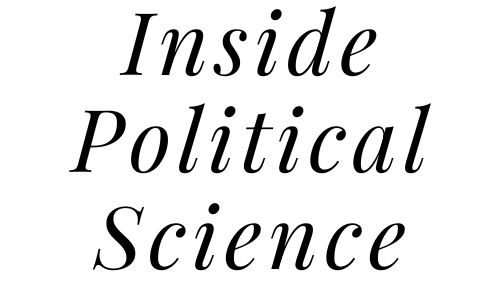
James Madison once warned that political factions could tear a nation apart. Today, his concerns remain relevant. In many governments, factions drive decision-making, often prioritizing party interests over national progress. A divided legislature can stall policies, leaving urgent issues unresolved. Studies show that high political polarization leads to legislative gridlock, lower public trust, and weaker governance.
Instead of serving citizens, officials often cater to factional demands. The result? Delays, conflicts, and ineffective leadership. Understanding the dangers of factions is crucial for addressing these challenges. This article explores why political factions can be a problem in government.
What Are Political Factions?
Political factions are groups within a government or political system that share common interests, ideologies, or goals. These groups often form around specific policies, leaders, or social movements, seeking to influence decision-making. While they can provide representation for diverse viewpoints, they also compete for power and control. This competition can drive political discourse but can also lead to conflicts that hinder effective governance.
Factions exist within political parties or as separate entities, shaping policy debates and legislative priorities. Some are formal organizations with clear leadership, while others are loosely connected alliances. Their primary goal is to advance their agenda, often at the expense of compromise. When factions become too rigid in their positions, political deadlock can occur, preventing governments from addressing critical issues.
Although factions can encourage debate and policy innovation, they also risk creating instability and division. When groups prioritize their interests over national well-being, cooperation suffers, and governance weakens. Over time, this can erode public trust in institutions, fuel political polarization, and make it harder for governments to function effectively.
Why Political Factions in the Government Can be a Problem
#1. Gridlock and Inaction
Political factions often lead to legislative gridlock, where opposing groups refuse to compromise. When factions prioritize their own interests over national progress, essential policies and reforms stall. This inaction affects crucial areas like healthcare, infrastructure, and economic policies. As a result, citizens suffer while politicians engage in endless debates with no resolution. Governments designed to serve the people become paralyzed by internal conflicts.
When factions control decision-making, passing legislation becomes nearly impossible. Even widely supported policies can fail due to factional resistance. This deadlock weakens institutions and frustrates the public. Over time, people lose confidence in their government’s ability to function. In extreme cases, prolonged inaction can trigger crises, forcing leaders to act hastily without thorough planning. The inability to govern effectively undermines democracy itself.
#2. Polarization of Society
Political factions contribute to deep divisions in society. When leaders and media reinforce factional narratives, citizens adopt rigid ideological positions. This creates an “us vs. them” mentality, reducing opportunities for constructive dialogue. Instead of focusing on shared national goals, people become fixated on partisan loyalty. Social cohesion weakens, and disagreements turn into hostility.
As polarization intensifies, cooperation between different social groups diminishes. Friends, families, and communities become divided over political allegiances. Elections and policy debates become emotional battles rather than rational discussions. In extreme cases, polarization leads to civil unrest or even violence. A deeply divided society is less resilient and more vulnerable to misinformation and manipulation. Governments should unite people, but factions often do the opposite, widening the gap between citizens.
#3. Undermining Effective Governance
Strong leadership depends on collaboration and efficiency. However, factions prioritize their own influence over good governance. Instead of working toward long-term solutions, politicians focus on short-term victories for their groups. This makes government slow, inefficient, and ineffective. Policies are often watered down or blocked entirely, preventing meaningful progress.
When governance is compromised, essential services suffer. Issues like education, public health, and infrastructure require coordinated efforts, but factional conflicts delay action. Bureaucracies become dysfunctional as leaders prioritize political survival over effective administration. Over time, weak governance creates instability, making it harder for governments to respond to crises. A system dominated by factions is less capable of meeting the needs of its people.
#4. Erosion of Public Trust
Trust in government is essential for a stable democracy. However, factions often put party loyalty above the public good. When politicians prioritize factional interests, citizens feel ignored and disillusioned. Government decisions appear driven by political games rather than genuine problem-solving. This fuels skepticism and apathy among voters.
Corruption and dishonesty also increase when factions dominate politics. Leaders may use public resources to benefit their groups rather than serve the nation. Scandals and partisan conflicts further damage credibility. As trust erodes, voter turnout declines, and engagement in democratic processes weakens. A government that loses public confidence struggles to maintain legitimacy, making governance even more difficult.
#5. Focus on Short-Term Gains
Factions often focus on immediate political victories rather than long-term national progress. Leaders prioritize policies that please their base rather than addressing deep-rooted issues. This short-term thinking leads to unstable policies that change with every election cycle, creating inconsistency in governance. Critical issues like climate change, economic reform, and healthcare require long-term planning, but factional interests frequently derail progress.
When leaders focus on quick wins, they avoid difficult but necessary decisions. Instead of investing in sustainable solutions, they implement policies that provide temporary benefits for political gain. This undermines stability and economic growth. Governments should plan for the future, but factionalism keeps them stuck in a cycle of reactionary politics, preventing meaningful development.
#6. Promotion of Extreme Views
Political factions often amplify extreme positions to gain support. To energize their base, factions push radical narratives that appeal to emotions rather than reason. This leads to the spread of misinformation and ideological rigidity. Politicians who adopt moderate or balanced views risk alienation from their own groups, further discouraging compromise.
As extreme views dominate, the political landscape becomes toxic. Rational discourse is replaced by outrage and hostility. Media outlets aligned with factions reinforce these narratives, creating echo chambers where only one perspective is heard. Over time, society loses the ability to engage in meaningful discussions. Policies shaped by extremism rarely reflect the needs of the broader population, leading to ineffective governance and social instability.
#7. Reduced Bipartisanship and Cooperation
A functioning government relies on cooperation between different political groups. However, factions make bipartisan efforts difficult by fostering distrust and opposition. When parties refuse to work together, meaningful reforms become nearly impossible. Even issues with broad public support can be blocked due to factional rivalries.
Without bipartisanship, democracy suffers. Leaders become more focused on defeating their opponents than serving their constituents. Policy debates turn into battles rather than problem-solving discussions. This division weakens institutions and makes it harder to address urgent issues. In a polarized environment, finding common ground becomes rare, leaving governments ineffective and stagnant.
#8. Manipulation of Public Opinion
Factions use propaganda and misinformation to control public perception. Instead of presenting facts, they shape narratives that serve their interests. This distorts public understanding of key issues, making informed decision-making difficult. Social media and partisan news outlets amplify these tactics, spreading misleading information at an alarming rate.
When people base their opinions on manipulated narratives, democratic engagement weakens. Citizens vote based on emotions rather than logic, allowing factions to maintain power through deception. This not only undermines trust in institutions but also prevents meaningful discussions. A government driven by manipulation rather than transparency is dangerous, as it erodes the foundation of informed democracy.
#9. Concentration of Power
Factions often consolidate power within small groups, limiting broader representation. When a few influential factions dominate, political diversity shrinks. Instead of reflecting the interests of the entire population, policies cater to select groups. This imbalance creates an uneven distribution of power, reducing democratic participation.
A government that favors factional elites undermines democracy. Political outsiders struggle to gain influence, and decisions are made behind closed doors. This concentration of power fuels corruption and reduces accountability. When leadership is dictated by factional interests, the voices of ordinary citizens are ignored. A truly democratic government must represent everyone, not just powerful factions.
#10. Undermining Democratic Values
Democracy thrives on fairness, representation, and accountability. However, factions often prioritize power over these principles. When groups manipulate elections, suppress opposition, or engage in dishonest tactics, democratic values erode. Instead of promoting free and open debates, factions use coercion to maintain control.
This erosion of democracy leads to instability and distrust. Citizens feel powerless when institutions serve factional interests rather than the public good. Over time, this weakens democratic engagement and opens the door to authoritarian tendencies. A government dominated by factions risks becoming less democratic, undermining the very system it was designed to uphold.
Closing Thoughts
Political factions are an unavoidable part of any government, but their influence can be harmful when they prioritize power over progress. While they can represent diverse perspectives, they also create gridlock, fuel division, and weaken trust in institutions. Instead of fostering cooperation, factions often make governance inefficient and unresponsive to public needs.
For democracy to function effectively, leaders must prioritize national interests over partisan loyalty. Citizens must remain informed and engaged to hold politicians accountable. A government should serve the people, not the agendas of a few powerful factions. Without efforts to reduce factionalism, democracy risks becoming a battleground for political elites rather than a system that represents everyone.
